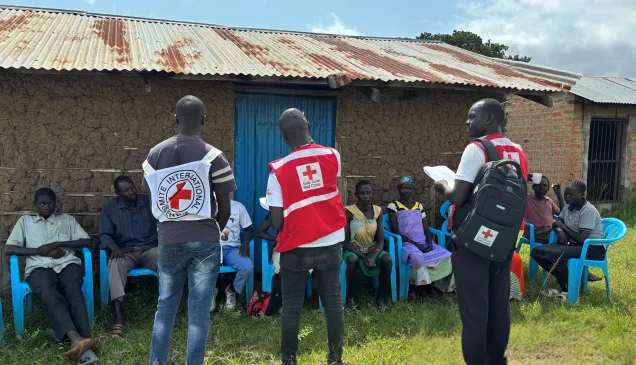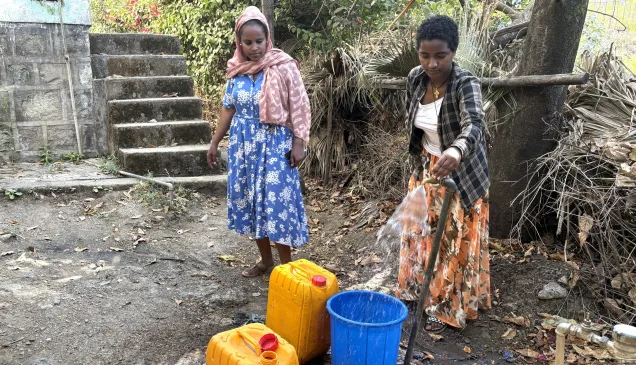Participants attending a theoretical session on dead body management.
Ethiopia: Management of the dead training to first and emergency responders.
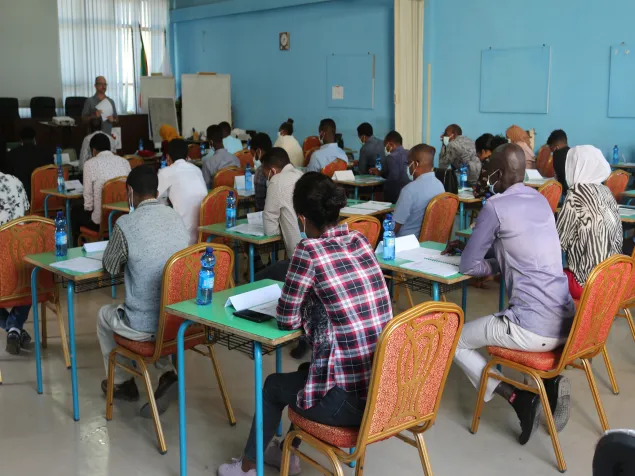
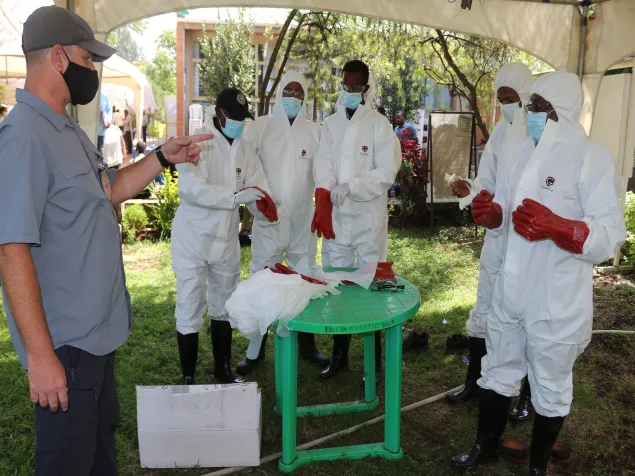
Stephen, the instructor, reminding members of the dead body management team (here acting as first respondents) on what to do when they arrive at the fatality site.
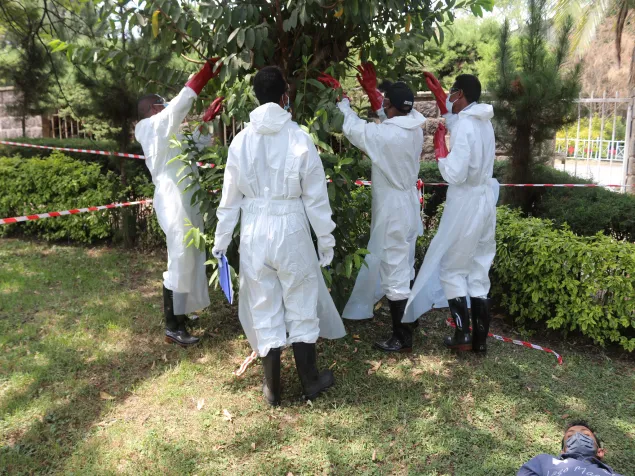
Dead body management team members (here acting as first respondents) looking for human remains and effects around the fatality site where one dead body was found.
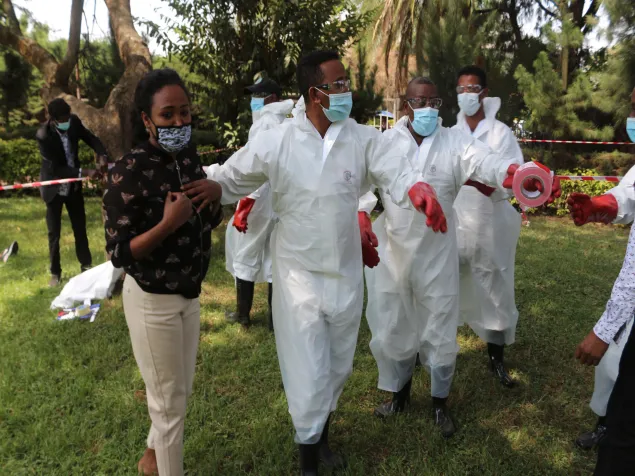
Participants at the training escorting a relative (role player) of a deceased after calming her down outside of the compound of the fatality scene.
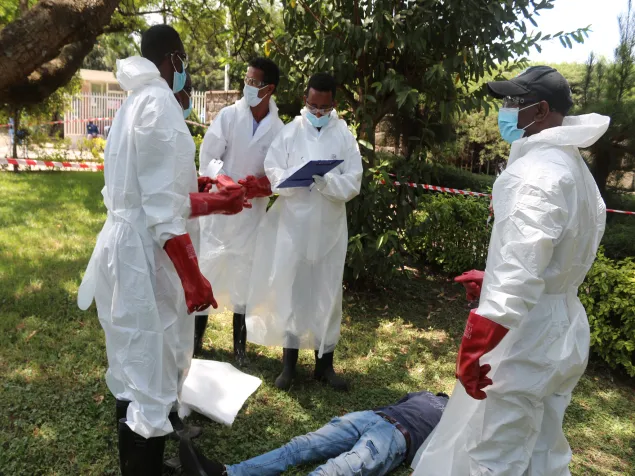
In this acted scene, dead body management team members exchange and take notes on the information they found at the fatality site.
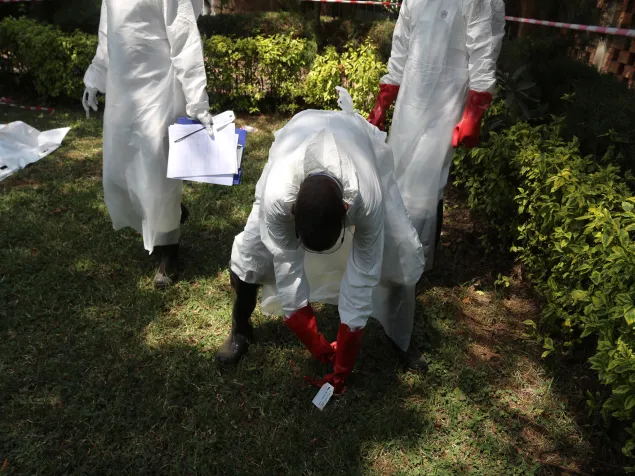
A dead body management team member allocating a unique code to a body part discovered at the fatality site.
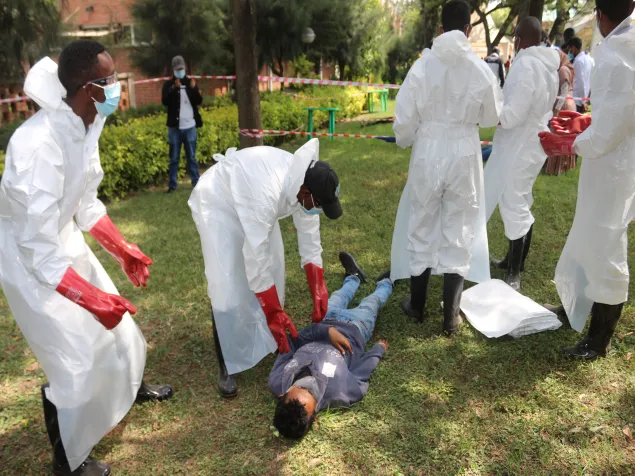
A dead body management team member allocating a unique code to a body part discovered at the fatality site.
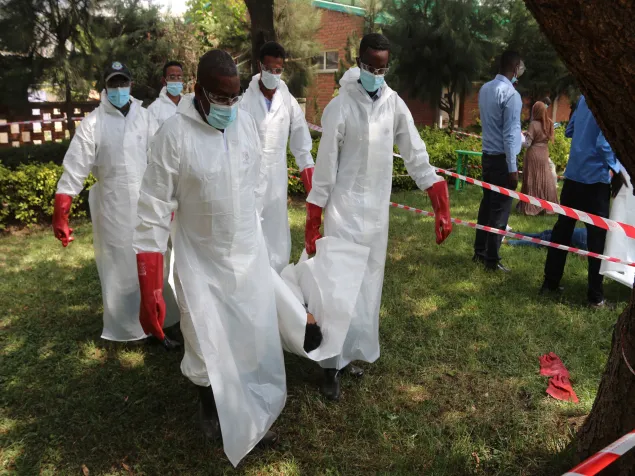
A dead body management team safely and respectfully transporting a body during a simulation exercise.
Natural and man-made disasters can have catastrophic consequences, causing large number of deaths and overwhelming local even regional emergency response services. Following many disasters, the retrieval and immediate management of dead bodies is usually done by first and emergency responders such as local authorities, organizations, communities and when necessary volunteers, including Red Cross staff.
Experience from events like the 2019 Ethiopian airlines crash, which left 157 people dead, reaffirmed that the first and emergency respondents play an important role in managing the remains of those who have died.
Witnessing the overwhelmed local emergency response following this tragic accident, the ICRC and the Ethiopian Red Cross Society (ERCS) have been working together since then to provide training on proper and professional management of dead bodies to the first and emergency responders in the country.
Twenty-eight Red Cross volunteers and staff as well as police members and forensic pathologists participated in the two-day dead body management training, which was conducted in Addis Ababa from 8-9 June 2021. This is the second time for the Red Cross to organize similar training in the country that was held in May 2019.
The training involved both theoretical and practical sessions (simulations) where the trainees had to handle a scenario involving numerous fatalities and challenging environmental situations.
"The main objective of the training was to enable the participants to have basic skills on the professional management of dead bodies," remarked Stephen Fonseca, ICRC African Regional Forensic Manager, who provided the training.
"The practical session involves allocation of a unique code to each body, taking photographs and recording data about each body as soon as possible, placing each body in a body bag, and the orderly temporary storage of the bodies, among others," he added.
Personal safety of the responder, body recovery and photography, ante and post-mortem data collection and international best practice in dealing with such situations were among the topics covered in the course of the training.
"I learned that applying international standard procedures in labeling dead bodies eases the works 0f forensic experts in the identification, "says one of the trainees, Libel Teklemariam, a Red Cross Volunteer.


